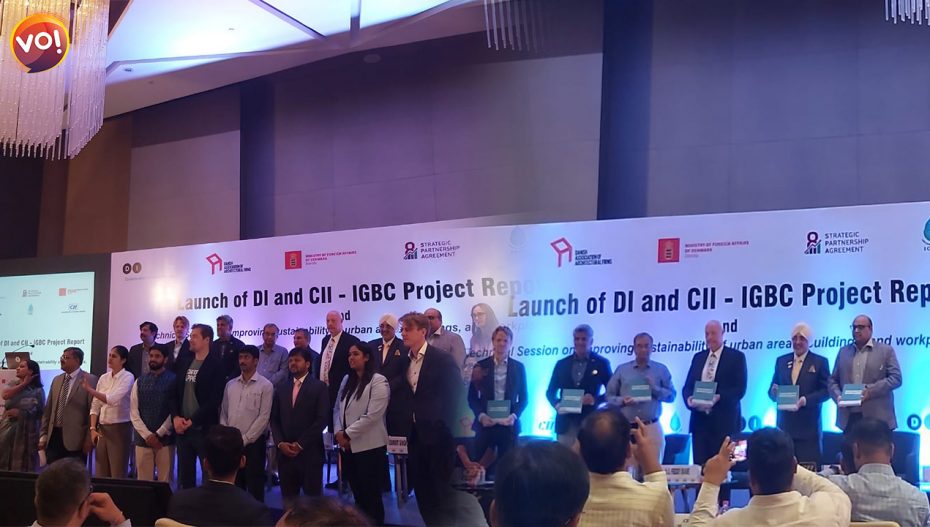Confederation of Danish Industry–Indian Green Building Council (CII-IGBC) launched a project report, ‘Sustainable Workspaces and Indian Business Environment, Vision for the Future,’ on Wednesday. They organized a launch event at Novotel Hotel, Ahmedabad.
At 10:30 AM, the National Chairman of IGBC, Gurmeet Singh Arora, started the panel by expressing gratitude to the Danish industry. He welcomed Freddy Svane, Ambassador of Denmark to India.
In his speech, he cited the example of Danish citizens and their continuous steps towards sustainable development goals (SDGs). He also mentioned his desire for a similar structure in India’s future. Further, Arora informed the gathering that the current building structure’s carbon emissions are around 40%.
Green Building Costs 2.12% Less Than Any Conventional Building
Further, the chairman mentioned the realm of electronic vehicles and the need for change in the construction industry. A case study by his team shows that a project completed with the aim of green building costs 2.12% less than any conventional building. He claims that we cannot call the cities ‘smart’ until and unless they are eco-friendly. Afterward, he said that one of his goals was to achieve zero carbon emissions by 2030.
BH Talati, Joint Secretary, Climate Change Department, Government of Gujarat, stated that 3,000 homes already have zero net emission. He aimed to make progressive Gujarat, a state with zero-net emissions by 2070, using ECBC ( Energy Conservation Building Code) course. Likewise, he discussed ways to reduce carbon emissions, including the bill they plan to introduce in late 2022 in Rajya Sabha.
As the event went ahead, Savne, the Denmark convoy, discussed the front mover primary sector and challenges in inventing technology that does not contribute to the climate crisis. He requested everyone to use the 3Gs (Good, Great, and Green).
Jayesh Hariyani added a fourth G for Gujarat to Savane’s idea. He shared his ambition of creating a virtual metering program of 1000 MegaWatt. Lastly, Denmark architect Peter Andreas gave a brief description of his work on sustainability. Bente Tofkater, Director of DI India, expressed her gratitude to Indian officials. She also hoped for more future collaboration.
At the end of the event, the CII-IGBC launched the India and Denmark collective progress report. Recently, India and Denmark collaborated on various fronts on research, ideas, and technology to prioritize sustainability and development.
Read this: Deepak Nitrite to BSE: Two Streams of Sodium Nitrite Unaffected









